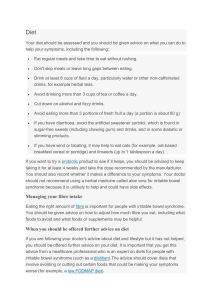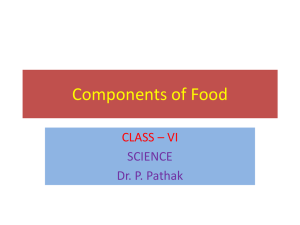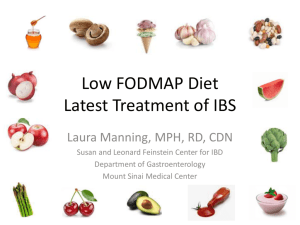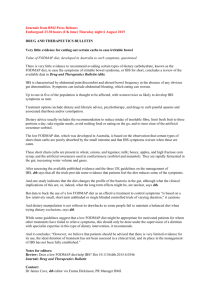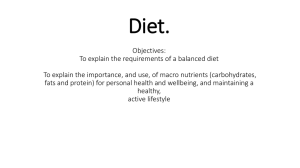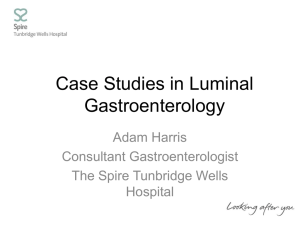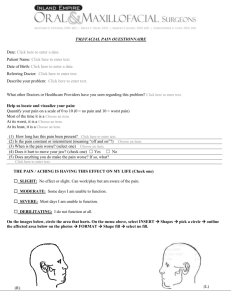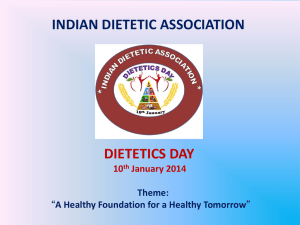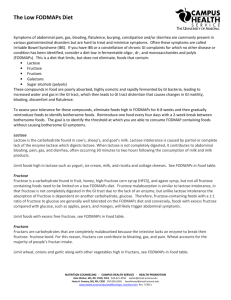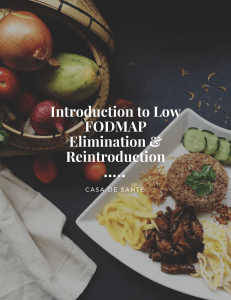FODMAP Diet - Bon Secours Hospital
advertisement
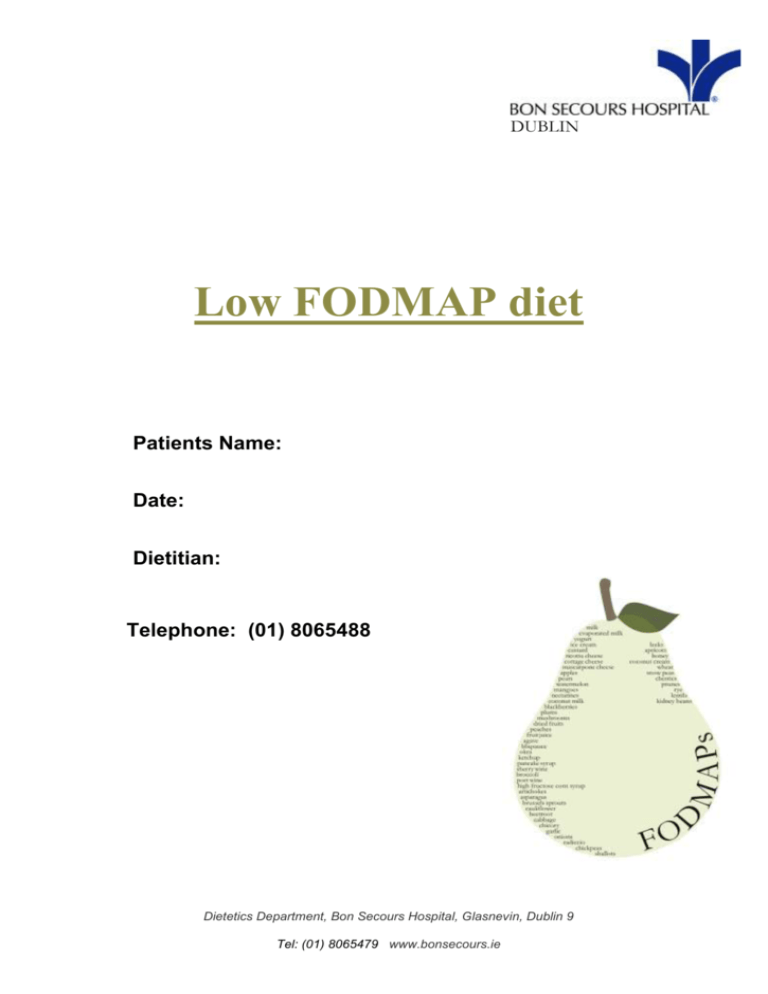
DUBLIN Low FODMAP diet Patients Name: Date: Dietitian: Telephone: (01) 8065488 Dietetics Department, Bon Secours Hospital, Glasnevin, Dublin 9 Tel: (01) 8065479 www.bonsecours.ie FODMAPs’ The 'low FODMAP' diet was developed in Australia and successfully adapted to the UK and Ireland for symptom management in patients with IBS, functional bloating and other gut disorders such as Crohn’s disease. What is a FODMAP? Is an acronym for – Fermentable oligo-, Di- and Mono-saccharides and Polyols. FODMAPS are basically types of carbohydrates, found in foods such as; bread, pasta, beans, and dairy foods. FODMAPS are poorly absorbed in the small bowel, and can trigger the symptoms below: Abdominal pain/ discomfort Abdominal bloating/ distension Flatulence/ wind Belching/ burping Urgency to open bowels Poor stool consistency Constipation Reducing FODMAPS from the diet has proved to be effective in reducing these symptoms in up to 75% of people. What does the low FODMAP diet involve? The aim of the diet is to identify which FODMAP foods, if any, cause symptoms. It involves restricting certain foods for up to 6-8 weeks, and then re-introducing them back into the diet through ‘food challenges’. Understanding Carbohydrates and the FODMAP Concept: Carbohydrates can be present in different forms in foods, varying from long-chain carbohydrates (e.g. starch), to simple sugars (e.g. glucose). These are both easily digested and quickly absorbed to produce energy. New research shows that there are another group of shorter chain carbohydrates called, fermentable oligo-saccharides, mono-saccharides and polyols, or rather FODMAPS. Dietetics Department, Bon Secours Hospital, Glasnevin, Dublin 9 Tel: (01) 8065479 www.bonsecours.ie There are several different types of short-chain carbohydrates that make up the FODMAP family. They are as follows: 1. Fructans and Galactans: These carbohydrates cannot be digested by humans and cause problems for the majority of patients with IBS. Examples of these include; wheat, garlic, onions, and beans. 2. Polyols: include artificial sweeteners such as sorbitol. 3. Fructose: Fructose requires little digestion, however some people they lack the enzymes needed to do this. This condition can be hereditary. Fructose is found in both honey and some fruits e.g. apples. 4. Lactose: In this condition sufferers also lack the required digestive enzyme, and can also be hereditary. Lactose is mainly found in dairy foods. Effects of FODMAPs on the Gut In the intestine, the small FODMAP molecules draw fluid into the bowel. They also are also rapidly fermented by gut bacteria and in turn can produce a lot of gas. This increase in fluid and gas distends the bowel, causing bloating, abdominal pain, discomfort, and diarrhoea. In some people, as it affects how the muscles in the bowel wall contract, it can also cause constipation. Figure 1. Mechanisms of FODMAPs in inducing gut symptoms Dietetics Department, Bon Secours Hospital, Glasnevin, Dublin 9 Tel: (01) 8065479 www.bonsecours.ie The “Low FODMAP diet” is not a “No FODMAP diet” and it is not a “lifetime diet.” It is recommend that this diet is followed for 6–8 weeks and then your progress is reviewed. Many people can return to their usual diet with just a few high FODMAP foods that need to be avoided. REMEMBER: FODMAPs’ do not cause the underlying functional gut disorder, but do represent an opportunity for reducing symptoms. If you would like to try the FODMAP diet please call the dietetic department to make an appointment. During your visit a Dietitian will guide you through specially designed resources. These provide information on foods to avoid, alternatives and products available. The initial consult takes 45 minutes (€60) reintroduction/food challenge consult, 30 minutes (€42). All fees can be submitted to health insurance companies for partial reimbursement. The remainder can be submitted via the Med 1 tax form. We hope that many of your questions have been answered within this leaflet, but should you have any further queries then do not hesitate to contact us: Tel: (01) 8065499 Appointments are available Monday – Friday, 8.00 am – 3.00 pm Dietetics Department, Bon Secours Hospital, Glasnevin, Dublin 9 Tel: (01) 8065479 www.bonsecours.ie
